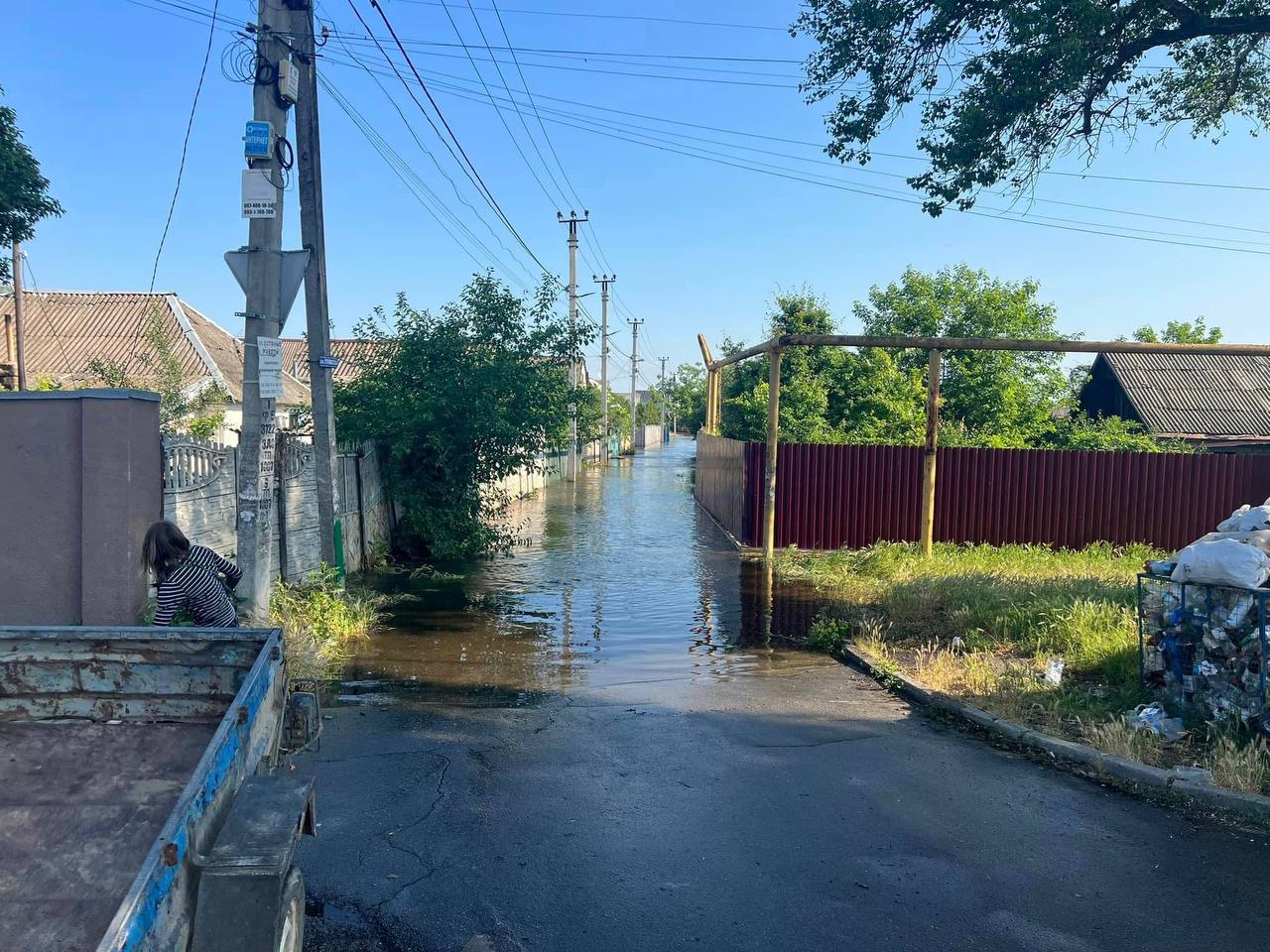Ministry: $40 million allocated to restore water pipelines impacted by Kahkovka dam disaster.
The Infrastructure Ministry reported[1] on June 7 that it had allocated Hr 1.5 billion (£40 million) for the construction of water pipelines in Kherson Oblast and other parts of southern Ukraine to restore centralized water supply to areas impacted by the Kakhovka dam disaster. A mass humanitarian and ecological disaster unfolded after the Kakhovka dam collapsed around 2:50 a.m. on June 6. According to the Ukrainian authorities, Russian forces blew up the dam to prevent a Ukrainian counter-offensive.
"We plan to start the construction of the pipeline, pumping stations, and clean and deepen the water canal as quickly as possible. Our first step is to coordinate the route considering the development of settlements and existing communication," Deputy Infrastructure Minister Mustafa Nayyem said. The new infrastructure will ensure that residents in affected parts of Kherson Oblast, as well as parts of Dnipropetrovsk, Zaporizhzhia, and Mykolaiv oblasts remain with clean drinking water.
The Health Ministry also warned[2] on June 7 that "chemicals, infectious disease pathogens from cemeteries, sewage treatment plants, and landfills may end up in wells and open water bodies" due to flooding caused in Kherson Oblast and parts of Zaporizhzhia Oblast by the Kakhovka dam's destruction. Local residents have been urged to drink only boiled or imported water and to take water for cooking from source points that are verifiably safe. Food products, including canned goods, should not be consumed if contaminated by flooding.
According to a June 7 update[3] provided by Ukraine's state-owned energy company Ukrhydroenergo, the water level in the Kakhovka Reservoir has decreased by almost 2.5 meters over the past 24 hours as a result of the dam's destruction. The Interior Ministry wrote[4] that as of 2:01 p.m. local time, more than 1,560 civilians have been evacuated from flood zones and nearly 1,600 police officers and rescuers are involved in relief efforts.
What are the consequences of the Kakhovka dam's demolition? The destruction of the Kakhovka dam can lead to serious humanitarian, ecological, economic, military, and legal consequences.
The demolition was carried out by Russian forces in southern Ukraine in the early hours of June 6. And it's among the most dramatic violations of the Geneva Conventions in...
 [5]
[5]  Kate Tsurkan
Kate Tsurkan
News editor
Kate Tsurkan is a news editor at the Kyiv Independent. She is a writer, editor, and translator.
Her work has been published in The New Yorker, Vanity Fair, Harpers, The Washington Post, and elsewhere. She is the co-founder of Apofenie Magazine. Originally from the U.S., she resides in Chernivtsi, a city in the west of Ukraine.
References
- ^ reported (www.facebook.com)
- ^ warned (www.facebook.com)
- ^ update (t.me)
- ^ wrote (t.me)
- ^ What are the consequences of the Kakhovka dam's demolition?The destruction of the Kakhovka dam can lead to serious humanitarian, ecological, economic, military, and legal consequences.
The demolition was carried out by Russian forces in southern Ukraine in the early hours of June 6.
And it's among the most dramatic violations of the Geneva Conventions in...
(kyivindependent.com)